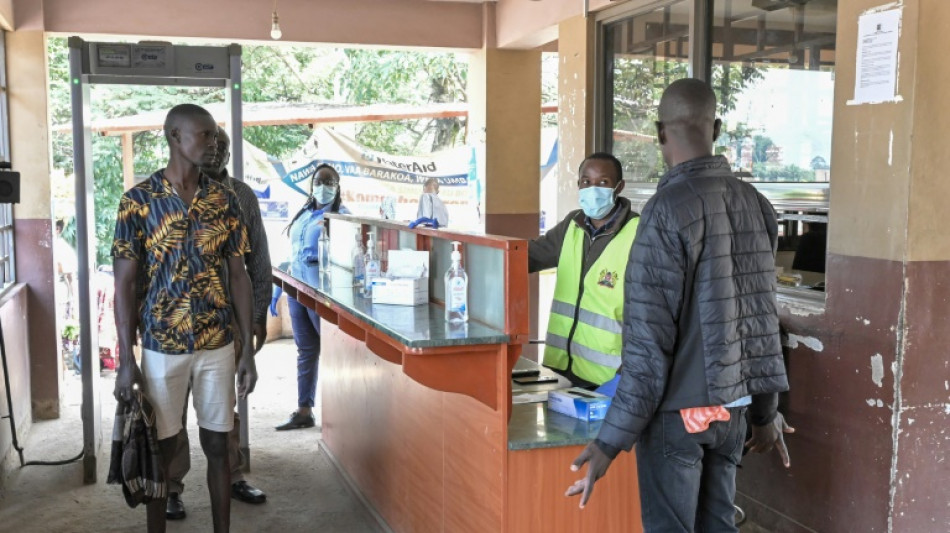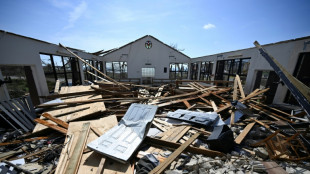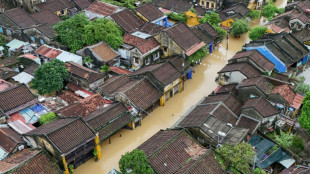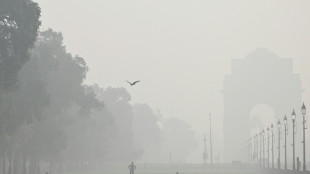
-
 Milan deny Roma top spot in Serie A, Inter beat Verona
Milan deny Roma top spot in Serie A, Inter beat Verona
-
Lens back up to third in Ligue 1 as Lyon held at Brest

-
 NFL-best Colts fall to Steelers, Packers lose to Carolina
NFL-best Colts fall to Steelers, Packers lose to Carolina
-
'Regretting You' wins spooky slow N. American box office

-
 'Just the beginning' as India lift first Women's World Cup
'Just the beginning' as India lift first Women's World Cup
-
Will Still sacked by struggling Southampton

-
 Malinin wins Skate Canada crown with stunning free skate
Malinin wins Skate Canada crown with stunning free skate
-
Barca beat Elche to recover from Clasico loss

-
 Jamaica deaths at 28 as Caribbean reels from colossal hurricane
Jamaica deaths at 28 as Caribbean reels from colossal hurricane
-
Verma and Sharma power India to first Women's World Cup triumph

-
 Auger-Aliassime out of Metz Open despite not yet securing ATP Finals spot
Auger-Aliassime out of Metz Open despite not yet securing ATP Finals spot
-
Haaland fires Man City up to second in Premier League

-
 Sinner says staying world number one 'not only in my hands'
Sinner says staying world number one 'not only in my hands'
-
Ready for it? Swifties swarm German museum to see Ophelia painting

-
 Pope denounces violence in Sudan, renews call for ceasefire
Pope denounces violence in Sudan, renews call for ceasefire
-
Kipruto, Obiri seal Kenyan double at New York Marathon

-
 OPEC+ further hikes oil output
OPEC+ further hikes oil output
-
Sinner returns to world number one with Paris Masters win

-
 Sinner wins Paris Masters, reclaims world No. 1 ranking
Sinner wins Paris Masters, reclaims world No. 1 ranking
-
Nuno celebrates first win as West Ham boss

-
 Obiri powers to New York Marathon win
Obiri powers to New York Marathon win
-
Two Louvre heist suspects a couple with children: prosecutor

-
 Verma, Sharma help India post 298-7 in Women's World Cup final
Verma, Sharma help India post 298-7 in Women's World Cup final
-
Inter snapping at Napoli's heels, Roma poised to pounce

-
 India space agency launches its heaviest satellite
India space agency launches its heaviest satellite
-
Wolves sack Pereira after winless Premier League start

-
 Debutants Berkane among CAF Champions League top seeds
Debutants Berkane among CAF Champions League top seeds
-
Sundar steers India to five-wicket win over Australia in 3rd T20

-
 What we know about the UK train stabbings
What we know about the UK train stabbings
-
Jonathan Milan wins wet Tour de France Singapore Criterium

-
 Canadian teen Mboko wins Hong Kong Open for second WTA title
Canadian teen Mboko wins Hong Kong Open for second WTA title
-
Two children among dead in Russian blitz on Ukraine

-
 South Africa opt to bowl against India in Women's World Cup final
South Africa opt to bowl against India in Women's World Cup final
-
Dominant McKibbin wins Hong Kong Open to seal Masters spot

-
 US Navy veterans battle PTSD with psychedelics
US Navy veterans battle PTSD with psychedelics
-
'Unheard of': Dodgers in awe of iron man Yamamoto

-
 UK police probe mass train stabbing that wounded 10
UK police probe mass train stabbing that wounded 10
-
'It's hard' - Jays manager Schneider rues missed chances in World Series defeat

-
 Women's cricket set for new champion as India, South Africa clash
Women's cricket set for new champion as India, South Africa clash
-
Messi scores but Miami lose as Nashville level MLS Cup playoff series

-
 Dodgers clinch back-to-back World Series as Blue Jays downed in thriller
Dodgers clinch back-to-back World Series as Blue Jays downed in thriller
-
Vietnam flood death toll rises to 35: disaster agency

-
 History-making Japan golf twins push each other to greater heights
History-making Japan golf twins push each other to greater heights
-
Death becomes a growing business in ageing, lonely South Korea

-
 India's cloud seeding trials 'costly spectacle'
India's cloud seeding trials 'costly spectacle'
-
Chiba wins women's title, Malinin leads at Skate Canada

-
 Siakam sparks injury-hit Pacers to season's first NBA win
Siakam sparks injury-hit Pacers to season's first NBA win
-
Denmark's fabled restaurant noma sells products to amateur cooks

-
 UK train stabbing wounds 10, two suspects arrested
UK train stabbing wounds 10, two suspects arrested
-
Nashville top Messi's Miami 2-1 to level MLS Cup playoff series


Mpox disease presents hard-to-weigh risks
As fears mount globally about mpox, apparently simple questions such as the danger it poses and differences between variants do not have clear and simple answers.
The World Health Organization in July declared an international health emergency over the spread of mpox, which first appeared in humans around 1970 in the Democratic Republic of Congo (DRC).
For decades, the illness long known as "monkeypox" was restricted to a handful of African countries, with estimates of its mortality rate ranging from one to 10 percent of people infected.
That uncertainty grew from 2022, when mpox spread elsewhere in the world, especially to Western countries.
Cases in these newly-infected states had very low mortality of around 0.2 percent.
Such differences likely stem from several variables.
First, someone living in the US or Europe is much more likely to receive swift, appropriate medical treatment than patients in most African nations.
The danger mpox presents "strongly depends on the quality of basic care," said Antoine Gessain, a virologist specialising in the disease.
The mortality rate measured in the current outbreak -- around 3.6 percent -- would therefore likely be much lower were it not mostly limited to the DRC.
- Child malnutrition -
Other factors weighing on the mortality rate include those that make some patients more vulnerable than others.
The vast majority of the deaths recorded in the DRC -- over 500 out of more than 15,000 mpox cases -- have been children, many of whom are affected by malnutrition in the country.
By contrast, in the DRC's 2022-23 epidemic, the very small number of people who died -- around 200 out of 100,000 cases -- were mostly adults whose immune system was already weakened by HIV infection.
Different mortality outcomes can also be explained by the way a disease is spread.
In 2022-23, most transmission was via sex between homosexual or bisexual men.
A further factor adding complexity is the clade, or family, to which the specific virus causing an mpox outbreak belongs.
Scientists are struggling to determine the differences between clades when it comes to health risks and transmission.
- Tricky comparisons -
The 2022-23 mpox epidemic was caused by Clade 2 mpox, which is mostly present in western Africa, but also found in South Africa.
DRC's deadly current outbreak stems from Clade 1 mpox, mostly found in the continent's central areas.
But a distinct second epidemic hitting mostly adults in the same country is linked to variant 1b, a derivative of Clade 1 that has only appeared recently.
Confusion in the media has led some outlets to call variant 1b more dangerous than previously-existing mpox varieties.
"There are rather big claims in the popular media for which evidence is limited, both about severity and about transmissibility of the new sublineage 1b," Dutch virologist Marion Koopmans told the UK-based Science Media Centre.
"What we do know is that Clade 1 is associated with more severe disease than Clade 2," she added.
In the past, Clade 1 outbreaks have been associated with higher mortality rates than Clade 2.
But researchers call for caution before drawing conclusions, even with apparently clear-cut figures.
The urgency of establishing the facts about mpox variants is all the greater as Clade 1 was detected in Sweden in mid-July -- for the first time outside Africa.
"It's very difficult to compare" between different clades "given that the context and the type of at-risk population are so important," virologist Gessain said.
"How can you compare children suffering from malnutrition and HIV-positive adults?" he asked.
P.Keller--VB




